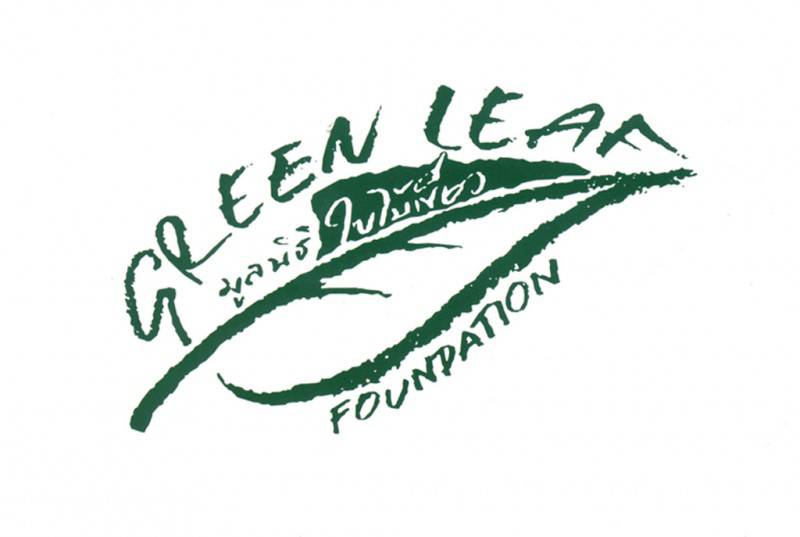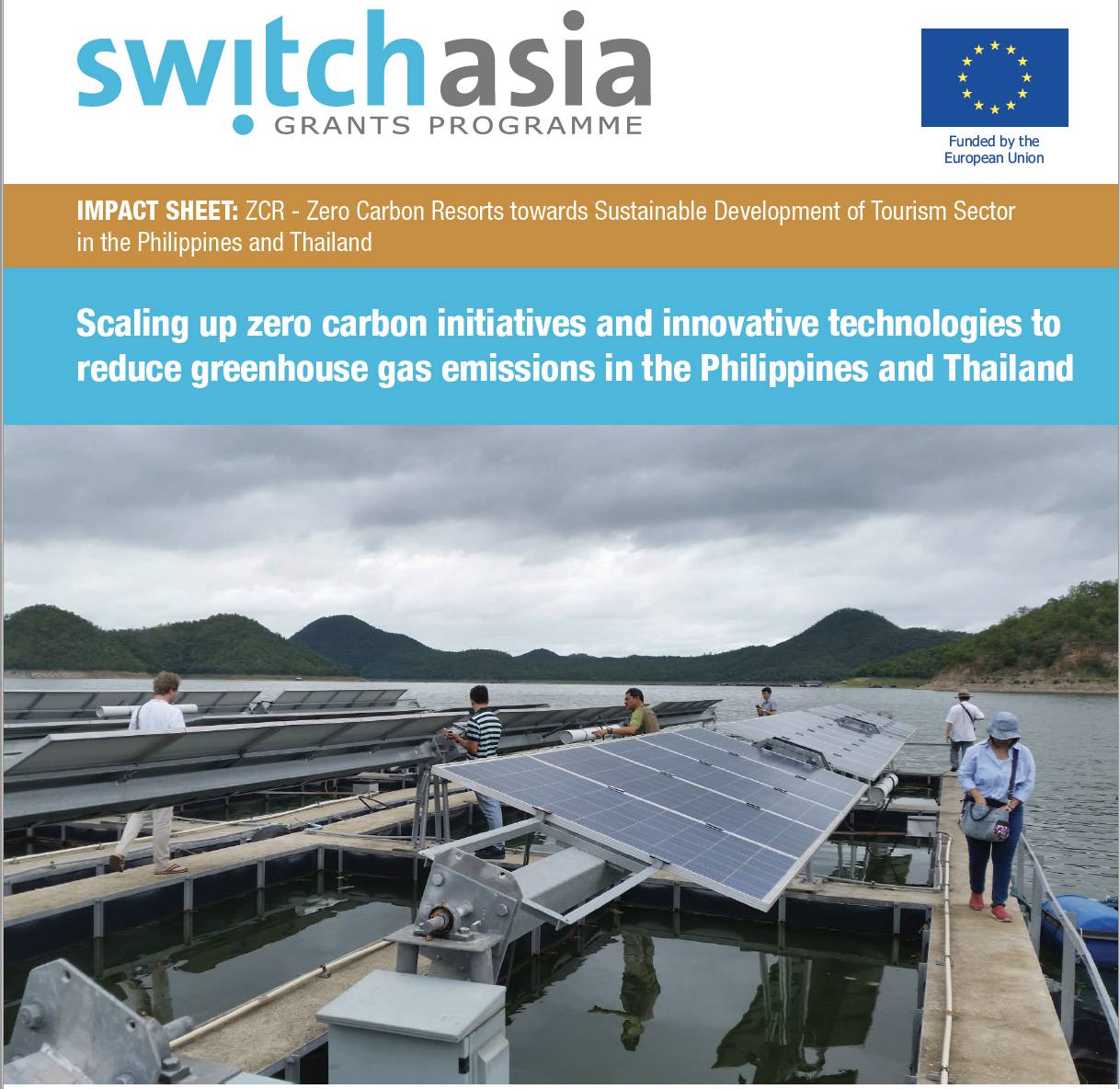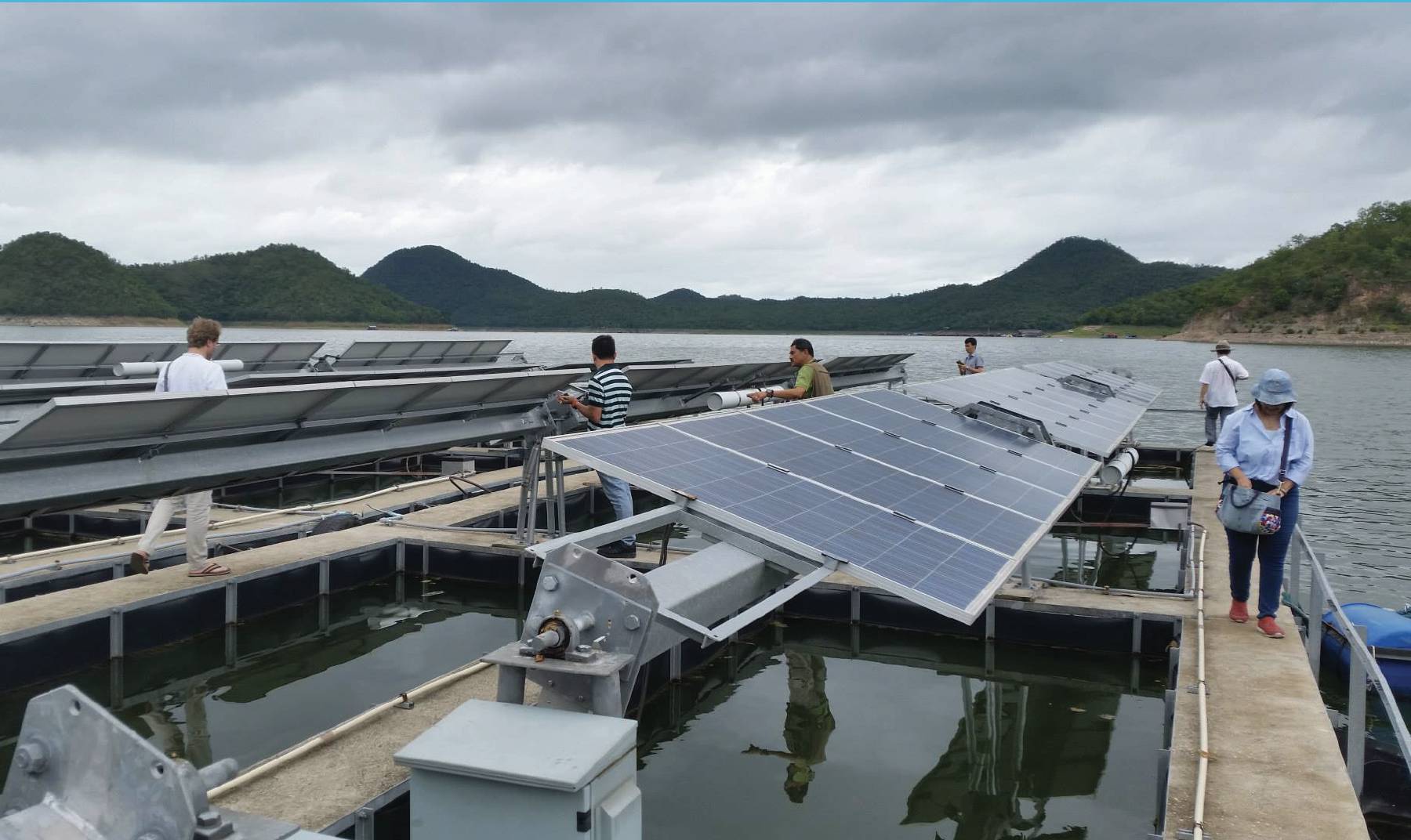
The Challenge
Tourism in the Philippines and in Thailand is receiving increasing attention as an excellent sustainable development option. Nevertheless, with the vulnerability of developing countries to climate change, one cannot neglect the negative impact that the tourism industry has on the environment. The tourism sector has a large potential to foster inclusive development, but only if operations run sustainably – preserving the environment, boosting the local economy and generating income along the whole value chain.
The Objectives
“Zero Carbon Resorts 2.0” contributed to the sustainable development of the tourism sector and its value chain in the Philippines and in Thailand, with a focus on reduction of resource consumption and CO2 emissions. It targeted a critical mass of SMEs, demonstrating the value of green tourism by increasing resource efficiency and using renewable resources. Specific project objectives included:
- Enabling SMEs in the tourism industry in the Philippines to become a SCP model for the tourism sector through certified Zero Carbon practices, as well as expose Thailand to efficient innovative technologies;
- Providing incentives and access to finance in both countries;
- Establishing a new generation of ZCR members in Thailand and in at least 5 additional locations in the Philippines;
- Developing a Philippine Green Hotel certification scheme based on the Thai Green Leaf standard and the ZCR principles;
- Empowering SMEs in the tourism sector by using a proven methodology to continuously improve energy efficiency and to become a model for replication in countries with similar climate conditions.
The Way Forward
Philippines
- The number of ZCR beneficiaries increased to more than 1000 hotels and resorts in the Philippines (initially there were 870 members);
- The ZCR Learning Centre attracted 1,400 visitors since its opening to the public;
- Reduced carbon emission of 340 companies, amounting to a total saved emission of 23.7 kt of CO2. Energy, water and other resources from the implementation of the ZCR members accumulated savings from 1% up to 70% using the indicator (kWh/guest-night);
- The ANAHAW – Philippine Sustainable Tourism Certification was successfully launched and recognised with 27 pioneer awardees (2018 – 2020);
- 15 ANAHAW Experts received professional training;
- Contributed to the integration and mainstreaming of ZCR principles into policies (integration in Palawan’s SEP clearance, creation of the policy white book and local green building code);
- Organised 5 technical seminars all over Palawan and reached 198 policy makers, LGU and technical staff;
- Reached 592,424 web visitors through the ZCR website.
Thailand
- 311 registered ZCR member hotels, resorts and restaurants joined the ZCR community;
- Capacities of 227 hotel engineers, housekeepers and chefs were strengthened on sustainable practices in the tourism industry through capacity building training programmes;
- Organised and conducted ZCR exchange visit in Thailand and impacted 26 tourism stakeholders in Lanta, Krabi and Bangkok;
- Strengthened the relationship with the central and local governing units and tourism associations in Thailand;
- Reduced carbon emission of 70 companies, amounting to a total saved emission of 8.20 ktCO2.
Duration:
05/ 2014 - 8/ 2018Total Budget:
EUR 2,286,283 EU Contribution: 80%Contact Detail:
Dr. Robert Wimmer
Project Manager, Center for Appropriate Technology (GrAT)
Wiedner Hauptstr. 8-10, A-1040 Vienna, Austria
[email protected]; [email protected]
Lead Partners
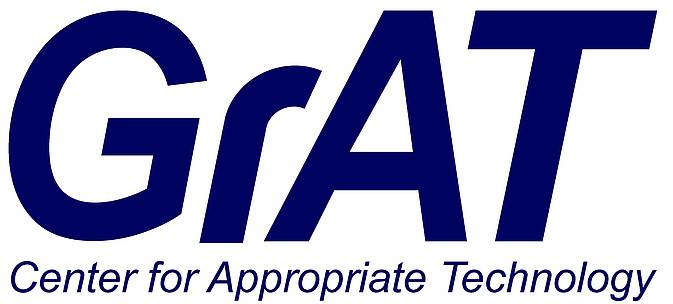
Gruppe Angepasste Technologie (GrAT)
Partners
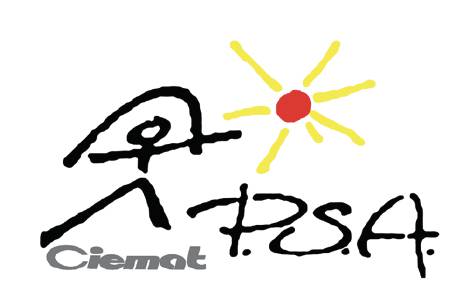
Centro de Investigaciones Energéticas, Medioambientales y Tecnológicas (CIEMAT)

EMCA
